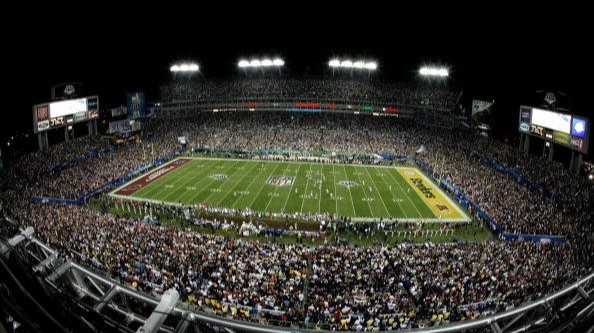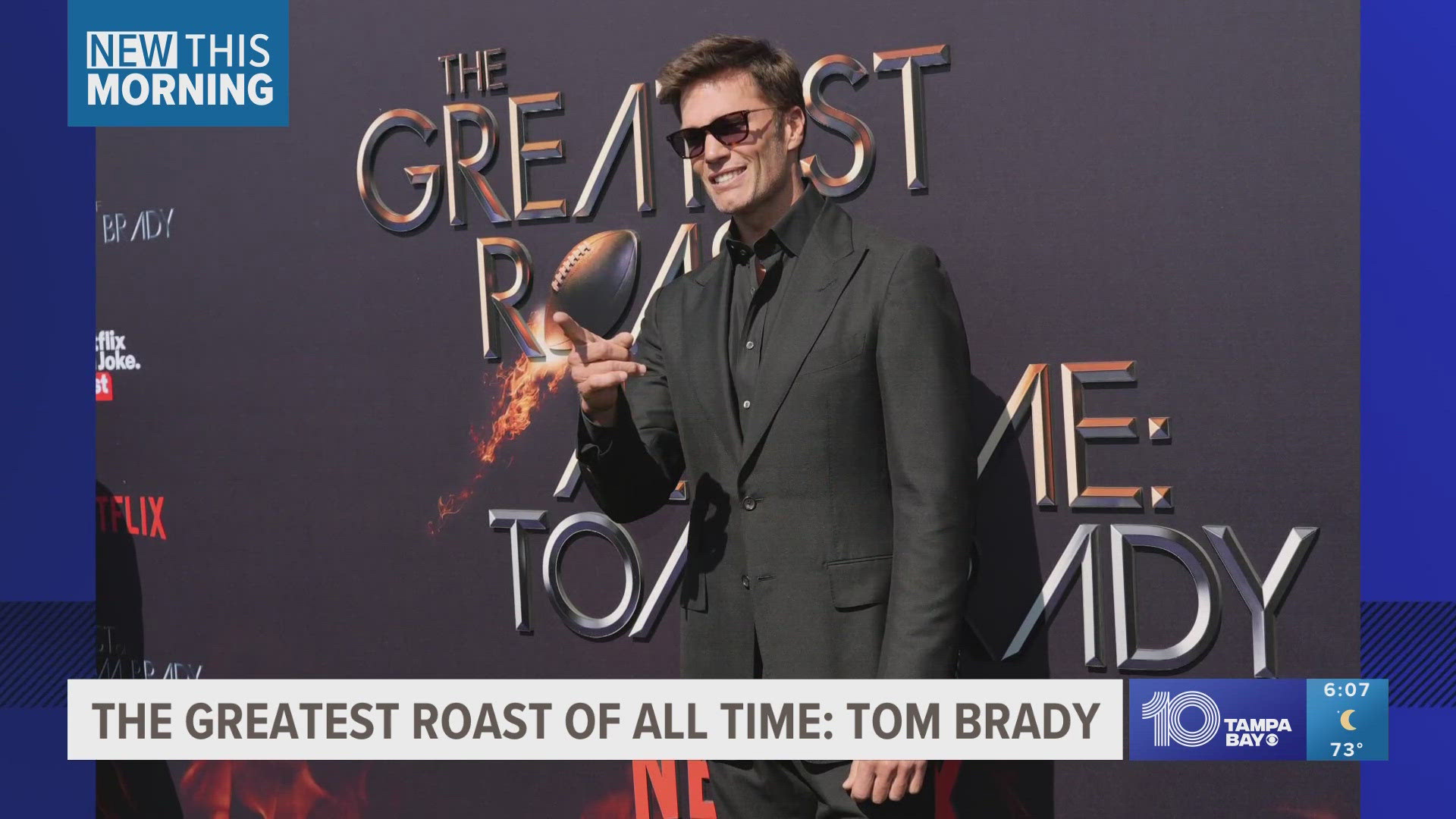TAMPA, Fla. - The soon-to-be-incorporated Tampa Bay Super Bowl LV Host Committee has just five weeks left to secure the necessary commitments to host Super Bowl LV in 2021, including hotel rooms, infrastructure and public resources. However, taxpayers may never know the extent of the promises – or their cost – because so much of the NFL’s bidding process remains secretive.
10Investigates dug deeper on what the championship game could cost taxpayers – and why the process isn’t more transparent. And got answers on the following five questions:
Question 1: Why don’t taxpayers know what’s promised to the NFL?
Free parking, presidential suites and outings at local golf courses are just the beginning of what potential host cities promise to the NFL in hopes of landing a Super Bowl.
Had it not been for a leaked document from Minneapolis’ 2014 bid, the world may never know the extent of the concessions made behind closed doors.
“The Super Bowl is one of the most competitive bid processes out there,” said Rob Higgins, Executive Director of the Tampa Bay Sports Commission. “If our first Super Bowl bid came to light, I don’t know that we would have had a second or a third or a fourth.”
Higgins said the NFL expects and requires confidentiality. While the Tampa host committee plans on disclosing how all public dollars will be spent, many of the promised resources and concessions to the NFL are covered by private donations.
Published reports have pegged the private fundraising for recent Super Bowls between $40 and $80 million, although Tampa doesn’t have the same corporate base as the last two host cities, Houston and Santa Clara/San Francisco.
Question 2: What will the Super Bowl cost taxpayers?
Higgins said the public cost to the 2009 Tampa Super Bowl was slightly more than $4 million, although that didn’t include countless man-hours from city, county and state employees, who were redirected from their typical duties to work event-related tasks.
However, security demands have increased since then, and Tampa’s then-Mayor Pam Iorio also aimed to cap city expenditures at $1 million when the bid was submitted in 2005.
This year, Mayor Bob Buckhorn and the Tampa City Council passed a resolution that promised to provide an endless slew of city services, from police to fire to landscaping, “at no cost to the NFL” and without any cap.
Buckhorn says the city has been successful at limiting expenditures to approximately $1 million for similar events, such as the College Football Championship game in January, and he would hope to do the same in 2021.
“We’re going to be financially responsible in how we pursue (major events), but I think it's well worth the investment,” Buckhorn said.
The NFL will also enjoy perks such as free parking and tax abatements at virtually every event it participates in Super Bowl week, and won’t even have to pay the typical state sales tax on tickets, since the legislature passed a law exempting Super Bowl tickets from state taxes. With an average Super Bowl ticket price now more than $1,300, the NFL will pocket an extra $6 million from the tax abatement.
That could be part of a free tax package worth more than $10 million to the league; money that won't be spent on Florida's schools, roads or safety agencies.
Hillsborough County, Pinellas County, the state-funded Florida Sports Foundation and several other local agencies are all expected to contribute cash toward Tampa's hosting effort as well.
“(The NFL) has monopolized the minds of the American public,” said longtime Tampa city councilman Charlie Miranda, a longtime opponent of subsidies for pro teams. “There's nothing wrong with being a millionaire or a billionaire. But you have to have some human interest in your heart for everybody that lives in those cities.”
Extended interview: Mayor Buckhorn comments on Tampa hosting the Super Bowl in 2021
Question 3: Why should taxpayers pay for any of the Super Bowl?
The NFL is expected to bring in $14 billion in revenue this year. The city of Tampa is expected to bring in $0.9 billion – and its employees tend to make a lot less than the NFL’s. So any contribution toward the NFL’s expenses irks some critics.
“The city doesn’t come first and it doesn’t come second,” Miranda said. “Greed comes first, and more greed comes second.”
However, Buckhorn suggested a seven-digit investment was well worth the returns if that’s what it takes to get a Super Bowl and the international exposure that comes with it.
“We all recognize sports is a business,” Buckhorn said. “To some degree, it’s in the business of municipal extortion.”
And because other cities are willing to provide free resources to the NFL, Tampa has to play the game too if it wants to host the Super Bowl.
“It’s very difficult to swim against the stream,” Miranda added.
Question 4: Does Tampa “need” another Super Bowl?
Four previous Super Bowls, the 2012 Republican National Convention, and the 2017 College Football Playoff championship game were all billed as events to “put Tampa on the map.”
Isn't the Big Guava on most maps by now?
“People know where Tampa is; they didn’t know us before,” Buckhorn said. “That exposure we get (from a Super Bowl) even though there’s a cost associated with it and we recognize that - is invaluable.”
"You've got so many different corporate influences that come into a community for (a Super Bowl),” Higgins added. “To us, it's really unlimited potential of what the residual value can be for an event like this."
Buckhorn also says it’s hard to put a value on the civic pride that comes with hosting a Super Bowl.
Question 5: What is the real return on investment (ROI) from hosting the game?
The NFL and its partners have claimed Super Bowls are worth hundreds of millions of dollars to a community. But those inflated figures are typically disputed and sometimes easily disproven.
Some economists studying receipts after a Super Bowl concluded the actual economic impact of the event – because of disruptions to the typical economy – may be closer to zero.
“Move the decimal one place to the left,” Holy Cross economist Victor Matheson told 10Investigates for a previous story about team- and league-sponsored economic impact reports.
But Higgins, Buckhorn, and other proponents of sports tourism say the true impact is somewhere in between the two extremes.
“I see restaurants that are staffing up, catering businesses...hotels that are filled,” Buckhorn said. “But most importantly, I see that international exposure we get from TV...and you can’t replace that.”
"It's not just about the economic impact of it,” Higgins added, “the social impact of the College Football Playoff national championship was phenomenal as well. (It brought) $1 million to our local schools in Hillsborough, Pinellas, and Pasco...that's a phenomenal return on investment."
Higgins also pointed to nearly 38,000 mentions of Tampa in news programs and more than 100 million social media impressions for the city from the championship game as well.
ALSO READ: Tax receipts show no college football boom
For many Tampa businesses, the economic impact could hinge on how disruptive the event will be to the typical February tourist bonanza. The 2012 RNC showed how heavy security could hurt more businesses than a big event can help. But the 2017 College Football Playoff championship game showed how successful an exclusive event can be in Tampa when several game-related events were opened up to the general public.
Editor's Note: Below is a timeline of major sporting events Tampa will host in the future. The timeline starts with January's College Football Playoff national title game.
Find 10Investigates reporter Noah Pransky on Facebook, follow his updates on Twitter, or connect with him on Instagram. Read his Sports Business Blog at Shadow of the Stadium.
Mark Bergin is a digital journalist with 10News WTSP. Like him on Facebook and follow him on Twitter and Instagram. You can also email him at mbergin@wtsp.com.


